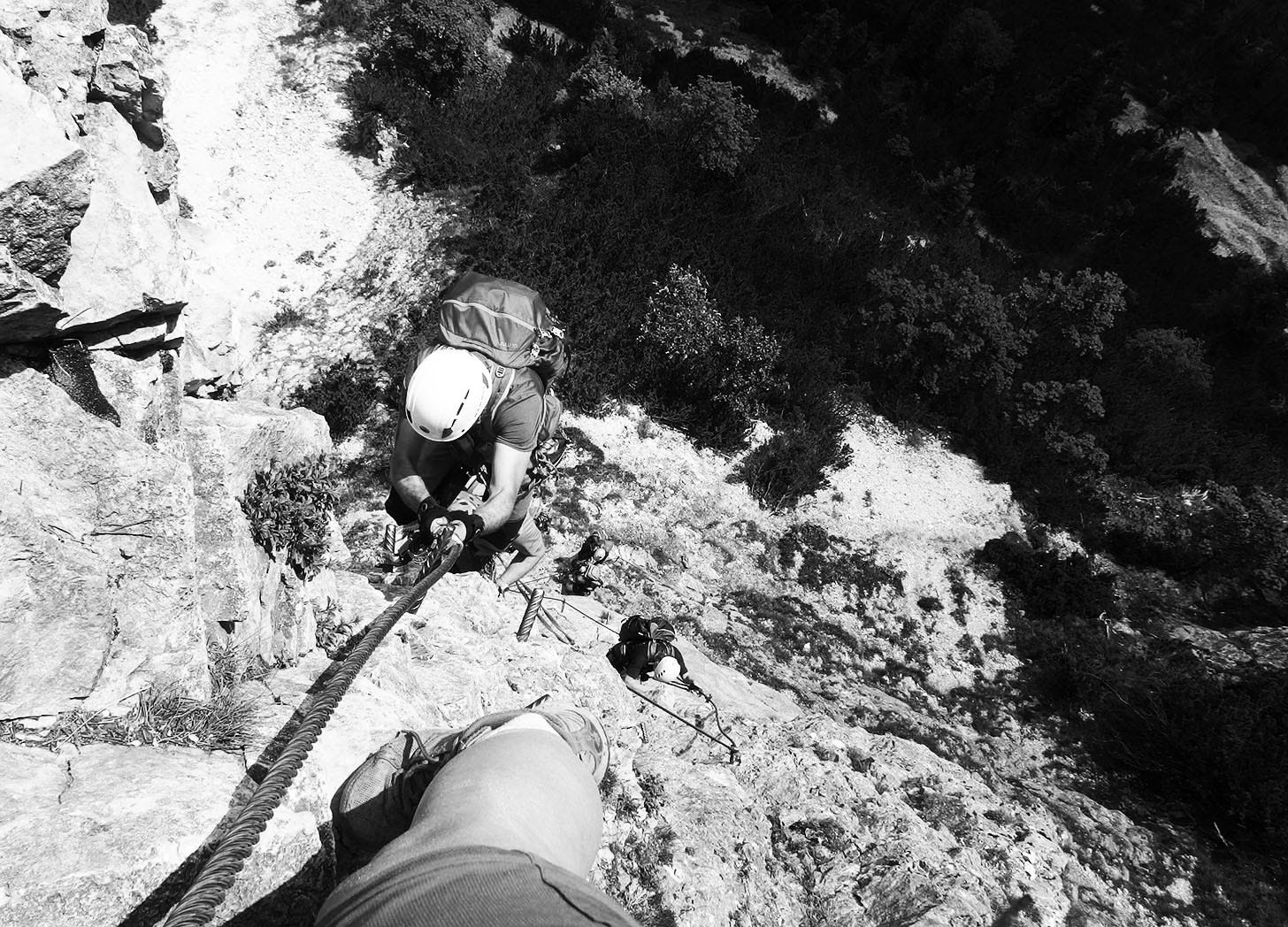#013 Is Facing Our Fear the Only Path to Bravery?
How to be Courageous (or not?)
One time I was backpacking in the Canadian wilderness, and I saw a pile of fresh bear dung in the middle of the trail. Not five minutes later, I heard a bear roar, but I wasn’t sure if it was a loud roar in the distance or a softer roar close up.
I thought I’d probably be fine, but the many faceted and nuanced world that I’d lived in before then collapsed into something flat and black and white: Life or death.

Supposedly, as a species, we’ve spent too generations running from bears (or lions or whatever) to quit this feeling. We fill our entertainment with it, and allow non-life-threatening things seem life-threatening. A hectic office job can feel like a life or death situation on a regular basis. Will the report get out in time or won’t it?
Another time, I was walking through the NYC subway alone in the middle of the night and turned a corner and ran into a rat the size of a dachshund. We both jumped in horror. I expected him to run away, but instead, he did the rat equivalent of saying, “Wow, that was weird. I didn’t expect to see you here,” then he went about his business walking along side me as if he were on his morning commute. It was creepy, but I also got the feeling that if a mugger popped out of the shadows, the rat would be on my side.
That’s another emotion we can’t quit as a species—the expectation that something so bad is about to happen that we must gather allies. It doesn’t matter if the ally is a rat who’ll definitely save himself at the first sign of trouble.
If we’re teeming with so much instinctual fear, how do we make the choices we want to make, instead of the choices our fear tells us to make?
In the book Big Magic, Elizabeth Gilbert notably advises us to make friends with it. The fear response is in the oldest, most powerful parts of our brains, and it’s necessary because it keeps us alive. It’d be dumb to eradicate it, even if you could, so befriend it. Invite it on your road-trip (because it’s coming along, anyway), but never let it drive the car (the road-trip metaphor is Gilbert’s, not mine).
There’s a lot of wisdom in this. We never get very far by denying the experience that we’re actually having. That’s why so many of us would rather risk being cast out (another long established human fear) than live in denial of our true selves.
I don’t think that necessarily means that we must resign ourselves to either living in constant fear or choosing a smaller, less authentic, life.
I’ve had a lot of success by watching the videos about fear and anxiety from Therapy in a Nutshell, doing vagus nerve exercises, and practicing self-distancing.
These techniques help us speak the language of our fear response. We can reassure it that nothing life-threatening is happening in the moment, so it can calm down.
Or, maybe I’m the only one who needs perpetual reassurance that nothing life-threatening is going on.
I’m constantly impressed by how brave people are. I see people in situations where every direction is a scary, but they keep moving forward, anyway. Of course, we often have no choice. The world asks us to brave whether we want to be or not.
In a situation with no other options, even the least courageous among us can find some courage somewhere. This forces us to build up our bravery muscles over time, and maybe most of us just need to recognize that we’re braver than we think we are.
What about the times when there are options? Do we dither forever, waiting for an easier path to open up? I think some people do, but I think most of us don’t. We eventually choose to move forward, anyway. We manage our relationship with our fear. In Elizabeth Gilbert speak, we let it come along on our adventures, but we don’t let it drive the car, or at least, not too much.
It occurs to me now that we all come equipped with a dozen different ways to feel fear, but we also come equipped with an equal number of ways to face them. Is facing fear the only path to bravery? I don’t know, but I think it’s the only one that makes any sense.
Things I enjoyed this week:
Tom Pendergast’s issue about his dad in his newsletter, Caribunkle, is touching and introspective.
This interview with Elizabeth Gilbert, Part 1 and Part 2, on the podcast Quitted.
On the podcast Reply All, Alex Goldman goes above and beyond to report on a call center scam operation based in India. The episodes are called “Long Distance,” Part 1 and Part 2.



Yes! Objective reality is a theory which cannot be proven.
Fear is just trying to keep me safe. Anxiety is fear that has been taken out of context. It is empowering when I feel my emotions and sensations directly. Resistance only makes it worse. Fortunately, I can stop making it worse.
Thanks for writing your newsletter.
Trying to be a Creator in a sea of influencers and attention gimmicks also takes courage. How do we separate being ourselves from the online game? I wrote recently about that, in this theory of "Influencer Creep", I found it somewhat amusing.
There's Free will but sometimes we're just stubborn. You have a lot of subjective looking within type of content, as a Psych major, I always like this kind of reading.